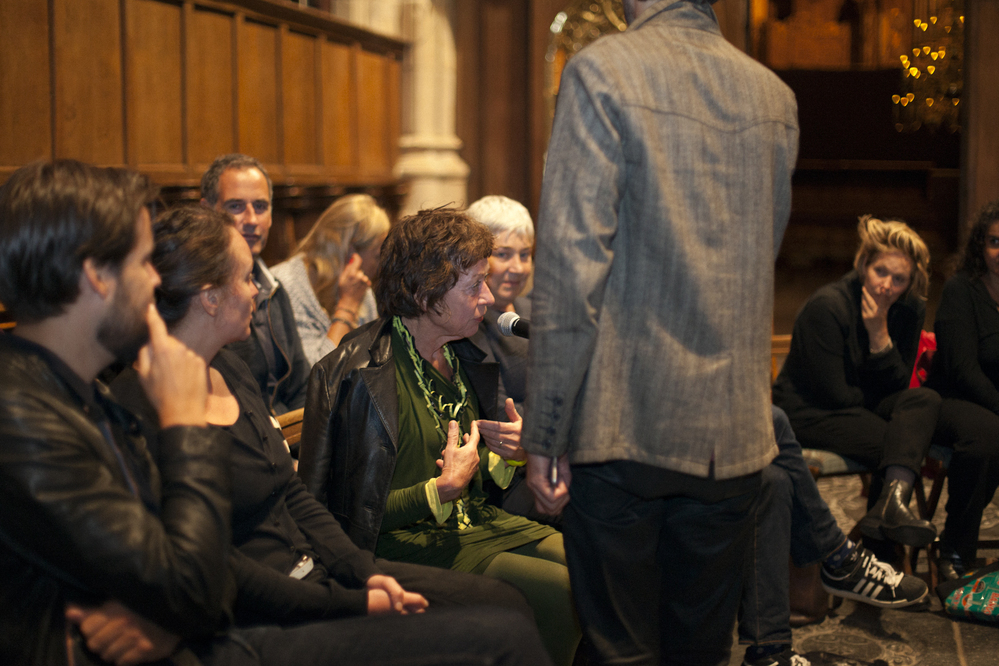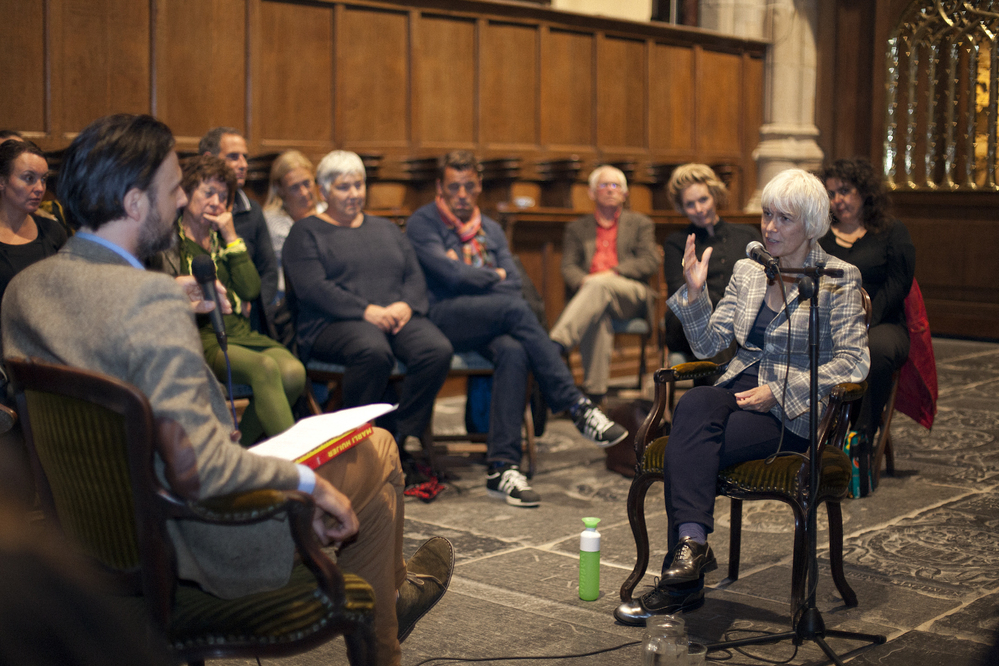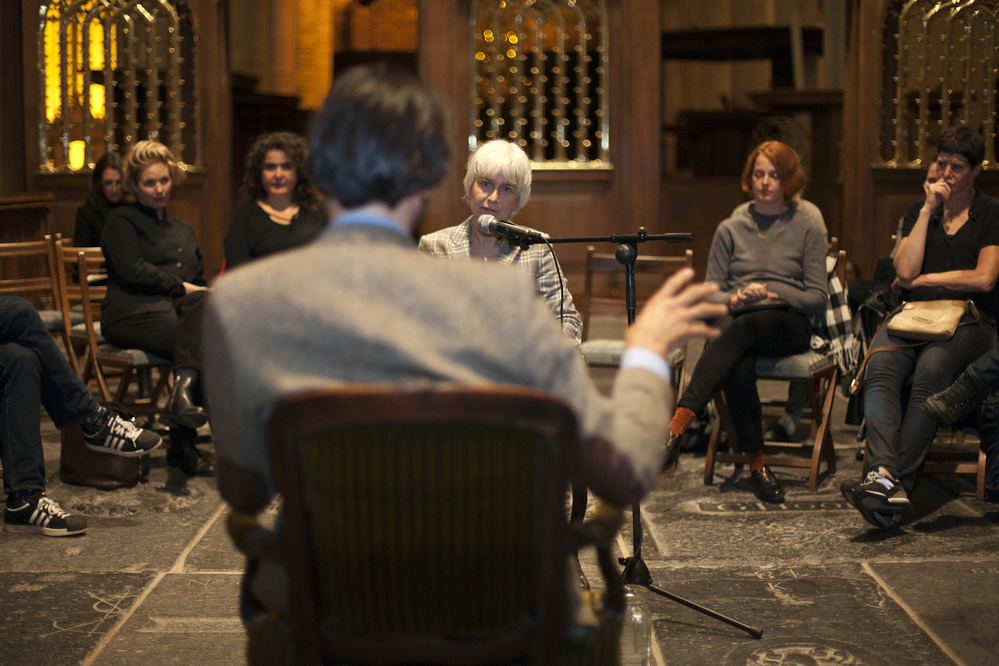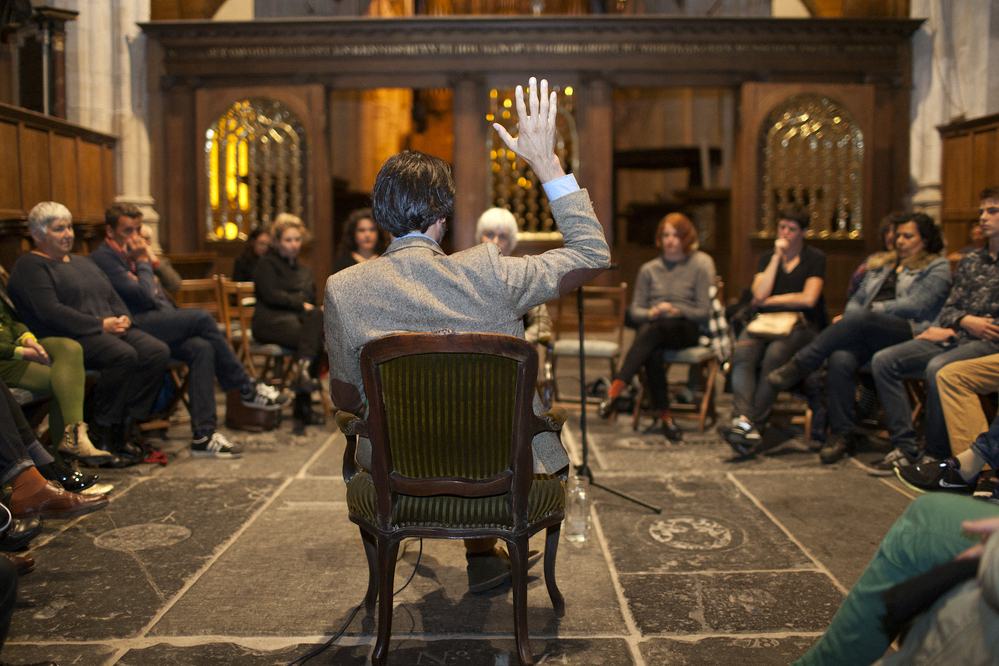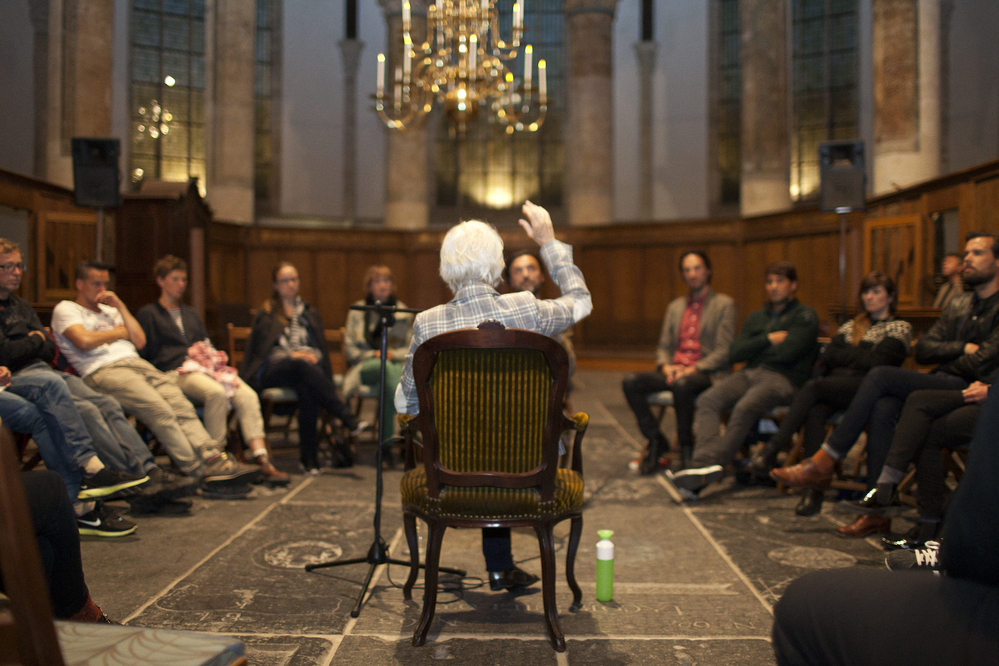Come Closer: Philosopher Laureate of the Netherlands Marli Huijer in Conversation with Frank Meester
Philosopher Laureate of the Netherlands Marli Huijer in conversation with philosopher, publicist and musician Frank Meester. Together, they wrote the book 'Goldmine of Thinking. Philosophy in Professional Practice', in which they show that both ancient and recent philosophical ideas are of great value for daily professional practice and topicality. Philosopher and physician Marli Huijer is René Gude's successor as Denker des Vaderlands (Philosopher Laureate of the Netherlands). She is not a 'study-room scholar', although she has written several books, such as the recent 'Rhythm and Discipline'. She calls herself not a counter-, not a co-thinker, but an in-between thinker; she wants the voices of all kinds of different people to be heard. Huijer is professor of Philosophy of Culture, Politics and Religion at the Faculty of Philosophy, Erasmus University Rotterdam. Her research focuses on the philosophy of people and culture. She is particularly interested in the question of how people arrive at orderings.
Come Closer was initially a series of meetings on the roof of the Oude Kerk. This summer programme was the first programme under the name Come Closer, curated by Michiel van Iersel and Radna Rumping (then from collective Non-fiction) that would become a recurring series in the Oude Kerk in later years. The evening programme brought together thinkers, musicians, artists and audiences at Taturo Atzu's installation, with spectacular views. Amid the city in motion, Come Closer offered a moment of reflection, with guests sharing a different story or performance with the audience each evening. Outdoors, like a contemporary hedge sermon, Come Closer invited visitors to come closer to the Oude Kerk and closer to each other. The platform could hold up to 70 people and most nights were sold out. Audiences went up via the scaffolding stairs. Given the location, equipment and technology were used as sparingly as possible; most programmes consisted of spoken word.
| Materials | Speakers, microphone |
Fragments of a process
Part of
Read more
Related
Read more
Read more
Read more
Read more
Read more
Read more
Read more
Read more
Read more
Read more
Read more
Read more
Identifiers for references
| Oude kerk Adlib Collect priref | 2134 |
